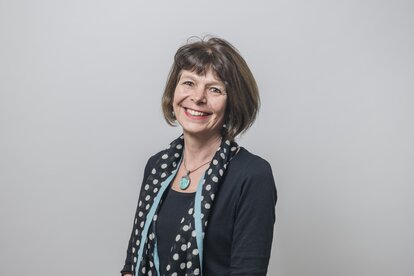The Shareday that I mentioned in my last posting not only provided opportunities for thematic discussion, but also for viewing a range of (mainly project-produced) videos. I was particularly struck by one, on women in politics in Albania. It was produced by the dldp – the Decentralisation and Local Governance Programme, which is implemented by Helvetas on behalf of SDC, the Swiss Agency for Development and Cooperation.
Support for women in politics is something encouraged in all our local governance projects, but what was different in the Albanian portrayal was the way that the project decided to work directly with all the different political parties, facilitating women’s political engagement through a Women in Politics Network (WiPN). Lili Hajdari, Project Officer responsible for social inclusion kindly provided further details.
By way of background, the dldp works in all the regions of North Albania (Shkodër and Lezhë, and more recently in Kukës, Dibër and Durrës). Much of this part of the country is very rural and conservative; men dominate public office, and political representation is carved out along essentially clan-based lines. Stark, polarised differences exist between the two major parties. This all makes for significant social barriers to women being elected as politicians – barriers that were not overcome by an amendment to the electoral code in 2008 stating that 1 in every 3 candidates should be of the other gender – that is (since men always dominate), a woman. The amendment did, however, encourage more women to stand for election in Albania overall; thus in parliamentary elections in 2009, women made up 31.9% of candidates, and 16.4% of those elected – against a previous 6.4%.
The WiPN came into being prior to local elections in 2011, and strove to encourage women to stand for election as well as building their capacities in public speaking and relevant knowledge. Activities included linking with international actors such as UN Women and the OSCE; study tours to other projects in the region (notably what was then LOGOS in Kosovo); and, for a lucky seven, support to attend formal training at the Albanian Academy of Political Sciences. One important principle stressed in this respect was, and is, neutrality – with equitable opportunities for women of different political parties.
From capacity building, activities expanded to networking – creating regional and local forums of politically interested women and supportive men. One member of the Municipal Council of Durrës, Jolanda Mustafaraj, is quoted as follows, “We came out of that Forum with a clear objective in our head: we should support each other in order to include as many women as possible in the lists of the candidates and cooperate with each other…” Various specific activities were devised to show how women politicians can make a difference. They included an awareness-raising campaign for women about breast and cervical cancer plus the provision of free screening (not regular practice in Albania); and the enrichment of school libraries with new books. Gender responsive budgeting was also introduced in the municipal council of Shkodër. According to Dave Rusta, member of the Municipality Council of Lezhë “Besides the awareness campaign, we achieved another goal: the increase of our reputation as councillors in the community. We made people say: these women do things, they achieve what they say.”
Earlier this year, a new law on Territorial and Administrative Reform in Albania led to the number of municipalities being greatly reduced, from 374 to 61. One result in the June 2015 elections was far fewer available seats – and greatly increased pressure on would-be candidates. Although it had been expected that women would make considerable strides and gain 40% representation in municipal councils, the actual result was more mixed – some municipalities surpassed the 40% mark, and others failed to reach it. This has apparently only confirmed WiPN members’ commitment to capacity building and networking. In the words of Lindita Doda, member of the Municipal Council of Burrel, “The new administrative map and the new law on electoral quotas obliged us to include in the lists of candidates many women who have no previous experience in policy-making. The Network should work heavily with these women once [they are] councillors, because they will soon face discussions and decision-making moments”.
Lili Hajdari adds that the WiPN (which now apparently covers about 30% of the population of Albania) has also established links with the (non-party political) Alliance of Parliamentary Women of the Albanian Parliament. This offers opportunities for joint initiatives in influencing policy at national level.
I know of other cases of women politicians of different political beliefs working together for a common cause – but doing so in such a systematic cross-party manner is exceptional. The WiPN seems to be a concept worth trying elsewhere.


